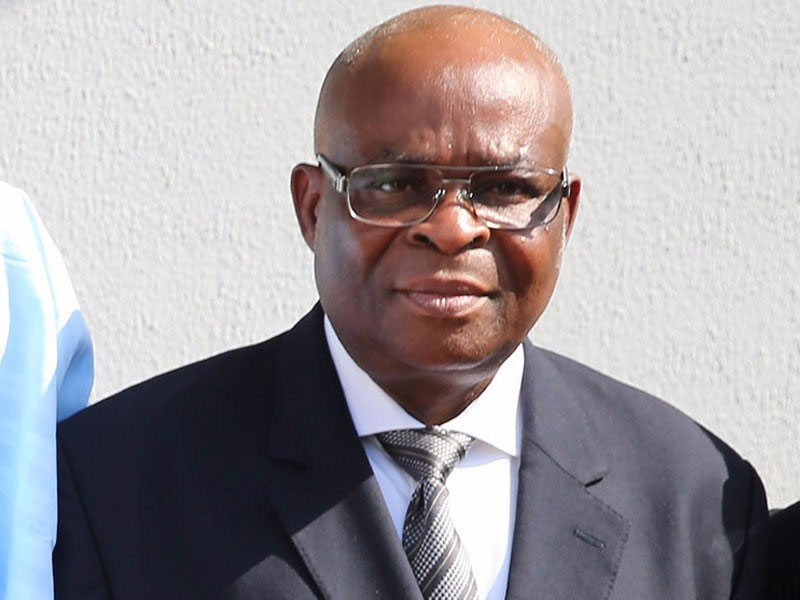A Coalition of Niger Delta agitators yesterday warned it would attack the nation’s oil infrastructure if the Federal Government does not back down on its plan to arraign the Chief Justice of Nigeria (CJN) Walter Onnoghen before the Code of Conduct Tribunal (CCT).
Onnoghen, who is from the region, is expected to appear before the CCT today over a six-count charge of alleged false declaration of assets.
The threat was contained in a statement by one General John Dukku on behalf of Niger Delta Watchdogs, Coalition of Niger Delta Agitators, and others.
“We want to state categorically that if the presidency fails to reverse its harassment against the CJN, we will have no other option but to mobilise all the Niger Delta fighters and commence serious actions that would shake the country and the whole world.”
The statement reads in part: “President Muhammadu Buhari was not disposed to Justice Onnoghen’s appointment to this position, which was why he refused to confirm the appointment after so many months of (Onnoghen) serving in acting capacity. It was during the period of his sickness while in Britain that the acting president, Prof. Yemi Osinbajo, confirmed the appointment.
“We wish to also recall that in August last year, Mr. Matthew Seiyefa of Bayelsa State, who was the most senior and most qualified officer at the time, was appointed to the position of acting director general of the Department of State Services by Prof. Osinbajo, only to be replaced with a retired and junior officer to Mr. Seiyefa, Mr. Yusuf Magaji Bichi by President Buhari as soon as he (Buhari) resumed duties. We hereby vehemently resist any attempt to remove CJN Walter Onnoghen from office.
In other reactions, five of the six governors of the south-south held an emergency meeting yesterday and called on the CJN to ignore the CCT summons.
Their communiqué was signed by Henry Seriake Dickson, Governor of Bayelsa State; Nyesom Wike, Governor of Rivers State; Ben Ayade, Governor of Cross River State; Udom Emmanuel, Governor of Akwa Ibom State; and Ifeanyi Okowa, Governor of Delta State.
It reads in part: “We hereby call on the president to condemn without any equivocation this assault on the CJN and the judiciary, especially coming after similar assaults on the National Assembly, to save the country from this embarrassment and global contempt.
“We call on the CJN to ignore this so-called court summons from the CCB and the provocative call for his resignation in some quarters. While we are not opposed to a genuine fight against corruption, such an action must always be anchored on the rule of law.
In alignment with the agitators, the governors noted: “The unceremonious removal of former acting director general of the Department of State Services, Matthew Seiyefa and his replacement is still very fresh. We note that the unfortunate action against the CJN further reinforces the perception that the Buhari administration has no regard for the sentiments of Nigerians, in particular the people of the Niger Delta, and the rule of law.”
Human rights lawyer, Ebun Olu-Adegboruwa, described the planned trial as illegal. He said according to Section 36 (4) of the 1999 Constitution, a citizen who is charged with a criminal offence must be taken to the appropriate forum with the requisite jurisdiction to try the crime.
He noted that the National Judicial Council (NJC) was established by Section 153 (1) & (2) of the 1999 Constitution to do just that. According to him, by Paragraph 20 (b), Part 1 of the Third Schedule, the NJC shall “exercise disciplinary control over” all judicial officers, including the CJN.
“The NJC being a quasi-judicial organ established by the constitution, it is the appropriate forum to first raise any matter against any judicial officer, including the CJN. Thus, the NJC has exclusive jurisdiction over all judicial officers, including the CJN.
“By the decision of the Court of Appeal, in the case of Nganjiwa v Federal Republic of Nigeria (FRN), no criminal charge can be laid against a judicial officer, including the CJN, in any court of law, without first filing such a complaint before the NJC.
“The Code of Conduct Bureau (CCB) and the CCT are both part and parcel of the Federal Republic of Nigeria and are bound by the decision of the Court of Appeal in Nganjiwa v FRN.
“Under and by virtue of Section 287 (2) of the 1999 Constitution, ‘the decisions of the Court of Appeal shall be enforced in any part of the federation by all authorities and persons and by courts with subordinate jurisdiction to that of the Court of Appeal’,” he said.
Adegboruwa stressed that the CCB and CCT are both subordinate entities to the Court of Appeal and are bound to enforce, apply and obey the decision of the Court of Appeal in Nganjiwa v FRN.
“From the foregoing, the criminal charges filed against the CJN before the CCT are illegal, ultra vires, unconstitutional, null and void, and should either be withdrawn forthwith, discontinued by the Attorney General of the Federation by filing a nolle proseque, or struck out by the CCT,” he added.
Also, the Nigerian Bar Association (NBA) condemned what it described as onslaught against the judicial arm of government. In a statement Saturday night, the president of the NBA, Mr. Paul Usoro, alleged plan to destabilise and lay prostrate other arms of the government with a view to eliminating voices of dissent and checks and balances.
The body expressed dismay at the speed with which the government received the petition against the CJN and immediately filed charges against him, insisting that such action violates the decision of the court that no judicial officer should be put to trial without being removed by the NJC.
He said: “In Nganjiwa v Federal Republic of Nigeria (2017) LPELR-43391 (CA), the Court of Appeal made it very clear that any misconduct attached to the office and functions of a judicial officer must first be reported to and handled by the NJC pursuant to the provisions of our laws. Only after the NJC has pronounced against such judicial officer can the prosecuting agencies of the Federal Government proceed against him.
Foremost legal luminary, Chief Afe Babaola (SAN), in a statement yesterday, said the constitution was explicitly clear on how the CJN can be removed and described the “proposal to recuse himself from office pending the conclusion of the trial” as worrisome.
“Without mincing words, I am as taken aback at this development in the same way as I was when not too long ago, the DSS invaded the homes of some judicial officers, including justices of the Supreme Court in the middle of the night on allegations of corruption.
“However despite the similarity between the two events, two things place this latest development above the previous one in terms of ignominy namely; the status of the CJN as the head of the judicial arm of government and the fact that since the invasion and the rash of prosecutions that were instituted against some judges, the court, via the Judgment of the Court of Appeal in Nganjiwa v Federal Republic of Nigeria (2017) LPELR-43391 (CA) has since stated firmly the procedure permitted by law when allegations of misconduct are made against judicial officers.
“Thus the point can even be made, that unlike other judicial officers who can be removed by the president acting upon the recommendation of the NJC, the CJN can only be removed by the president upon receipt of an address supported by two-thirds majority of the Senate!
Source: Guardian Newspaper.




